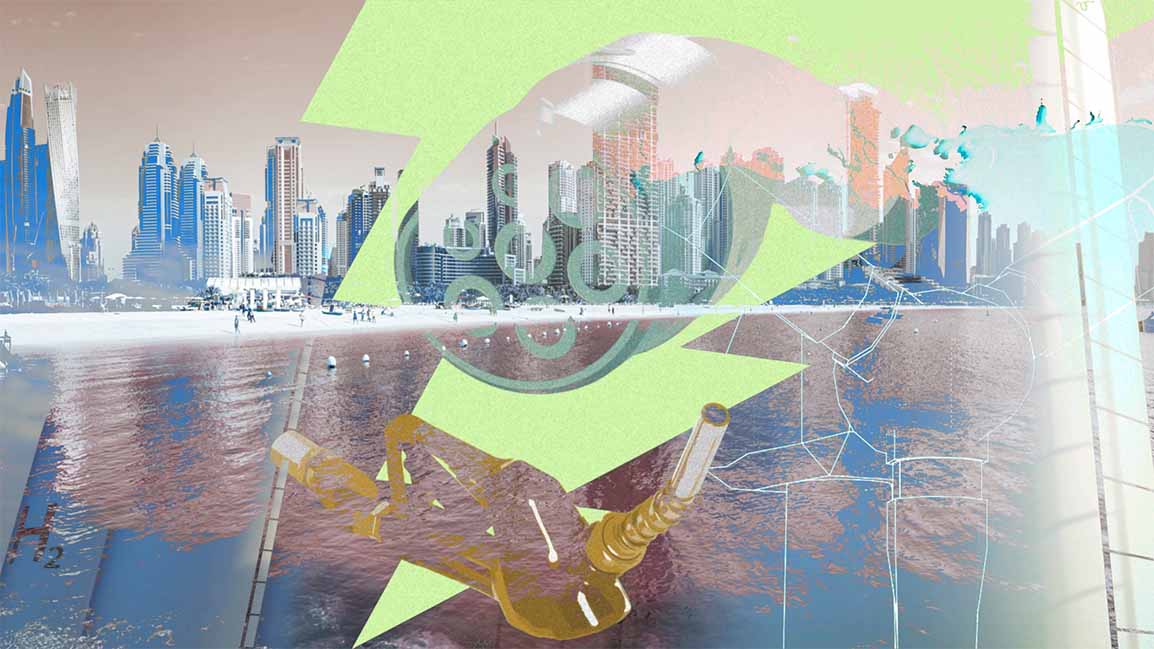- | 11:30 am
UAE charges ahead with cleantech, net-zero emission goals
As UAE gears up to host COP28 in 2023, the region is committed to cleantech development and raising GHG emission reduction targets

The United Arab Emirates (UAE) has already set its pace for cleantech development in the MENA region. The latest endeavor furthering this cause would be the agreement between Abu Dhabi’s tech ecosystem Hub71 and Siemens Energy.
This venture will bolster the nation’s commitment to driving investments in green infrastructure and clean energy projects.
At a time when the UAE is set to host COP28 in 2023, the agreement will identify prominent cleantech and climate-tech startups interested in exploring opportunities that can accelerate the clean energy transition. The partnership reinforces the importance of energy transition as the world pivots towards more sustainable and renewable energy sources, said Badr Al-Olama, acting chief executive of Hub71.
UAE CABINET APPROVES UPDATED VERSION OF SECOND NDC
Recently, the UAE Cabinet, headed by His Highness Sheikh Mohammed bin Rashid Al Maktoum, Vice President and Prime Minister of the UAE and Ruler of Dubai, approved an updated version of the UAE’s second Nationally Determined Contribution (NDC) under the Paris Agreement.
Supporting the objectives of the UAE Net Zero by 2050 Strategic Initiative, the new document outlines the country’s increased climate target of reducing greenhouse gas (GHG) emissions by 31%. This is in comparison to the business-as-usual scenario for the year 2030, which is projected to amount to 301 million metric tons of carbon dioxide equivalent (CO2e), assuming a moderate annual economic growth rate based on historical trends. The reduction target translates into an absolute emission avoidance of 93.2 million metric tons of CO2e.
Her Excellency Mariam bint Mohammed Almheiri, Minister of Climate Change and Environment, said, “Owing to the futuristic vision of its wise leadership, UAE raised its climate ambition in its first and second NDCs, submitted in 2015 and 2020, respectively. Today, we mark a new milestone in our voluntary commitment to environmental protection and climate action as we respond to the call of the Glasgow Climate Pact in our enhanced GHG emission reduction target.”
The revised second NDC strongly emphasizes including women, youth, and communities vulnerable to climate change in developing policies and initiatives that support climate-smart living.
EMERGING EV MARKET
The Middle East has been highly proactive, working to establish itself as a global leader in developing green hydrogen, solar energy, and EVs.
According to a report by Arthur D. Little, UAE’s electric vehicle market, an emerging sector, is projected to grow at a rate of 30% annually between 2022 and 2028.
Abu Dhabi and Dubai have already taken significant steps to implement regulations in their respective fields. The Abu Dhabi Department of Energy published the regulatory policy for EV charging infrastructure in May 2022 to create a clear framework for EV ownership and management.
In a bid to fully electrify its public transportation, the Qatar Free Zones Authority has worked tirelessly to commission e-bus factories. Saudi Arabia, the largest economy in the region, has committed to having 30% of Riyadh’s automobiles electrified by 2030 and achieving carbon neutrality by 2060.
Most Innovative Companies comes to the Middle East this October! Click here to know more.































